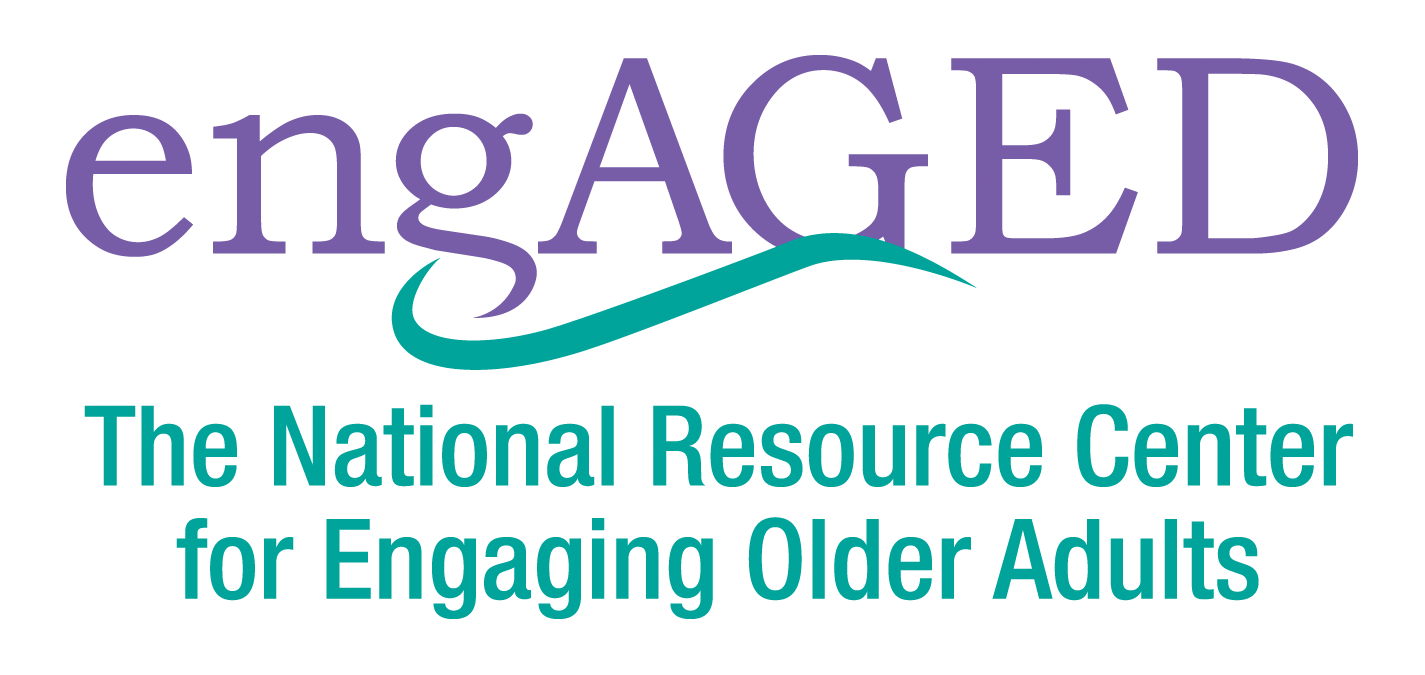Developing Volunteer Opportunities to Help Older Adults Stay Engaged: Takeaways from the January engAGED Webinar
Volunteering provides older adults with a way to expand their social circles, strengthen ties to their communities, contribute skills and time to support others, connect with peers—and improve their health. To take a closer look at the ways the Aging Network can support older adult volunteers, the January engAGED webinar highlighted examples of volunteer opportunities for older adults that can be replicated by the Aging Network and partner organizations.
Benefits of Volunteering
Volunteer opportunities help older adults stay physically and mentally active and connected to their communities. Research shows that volunteering for two hours a week, or 100 hours a year, can lead to improved mental, emotional and physical health (Lum and Lightfoot, 2005). An AmeriCorps Seniors longitudinal study focused on first-time volunteers in its Foster Grandparent and Senior Companion programs found that after two years, volunteers reported improved or stable health, decreased feelings of isolation, decreased levels of depression and improved levels of companionship. These findings demonstrate the improved health, psychological well-being and connection older adult volunteers can experience.
Older Adult Volunteers Help Meet the Unmet Needs of Homebound Older Adults
Area Agency on Aging, Region One in Maricopa County, AZ, created the Caring Circles program in response to a long waiting list for home and community-based services. Through the program, 25 half-time AmeriCorps members who are age 55 and older are assigned to six geographic groups with one team lead to help older adults in their community who are homebound and isolated. The AmeriCorps members provide friendly visiting, telephone reassurance, transportation, assistance with grocery shopping and more. In 2022, the AmeriCorps members will also help the older adults they serve become more comfortable with technology. Both the AmeriCorps volunteers and the homebound older adults they serve benefit from the increased social connection. A key to success for the program has been a highly capable program coordinator to help with volunteer recruitment, training, continued motivation and retention.
Older Adult Volunteer Fitness Instructors Help Peers Remain Active
Club 99, administered by the Erie County Department of Senior Services in Buffalo, NY, offers group fitness classes for older adults led by older adult volunteer instructors. Class participants interested in becoming instructors are trained by Erie County and Richard Derwald, the creator of the program, so they can lead classes at senior centers throughout the county. Serving as fitness instructors gives the older adult volunteers a renewed sense of purpose, helps facilitate friendships and reduces social isolation. Volunteer instructors participate in four to five classes in which they receive materials needed to lead fitness classes, including resistance bands, t-shirts and exercise balls. Club 99 initially took its program virtual in response to the COVID-19 pandemic so volunteers and participants could continue to participate in the classes, and now both virtual and in-person classes are offered.
Recruiting and Retaining Volunteers
Looking for tips on how your organization can get its volunteer program started? The January engAGED webinar speakers offered the following tips for recruiting and retaining volunteers.
Recruitment:
Advertise volunteer opportunities through local newspapers, organization newsletters, magazines, radio and television.
Promote volunteer opportunities on your organization’s website and social media.
Present at community group gatherings such as churches, women’s groups or neighborhood associations to share more about volunteer opportunities for older adults.
Retention:
Engage a strong volunteer coordinator.
Check in on your volunteers often. Ask your volunteers for formal feedback and input on the volunteer program and develop opportunities that give your volunteers a voice.
Reinforce how much you appreciate your volunteers through recognition events and other appreciation activities.
Additional Resources
If your organization is interested in administering an AmeriCorps Seniors program, visit americorps.gov/partner/funding-opportunities. To learn more about the volunteer programs featured in the webinar and ways your organization can develop similar programs, watch the webinar recording and view the webinar slides.
